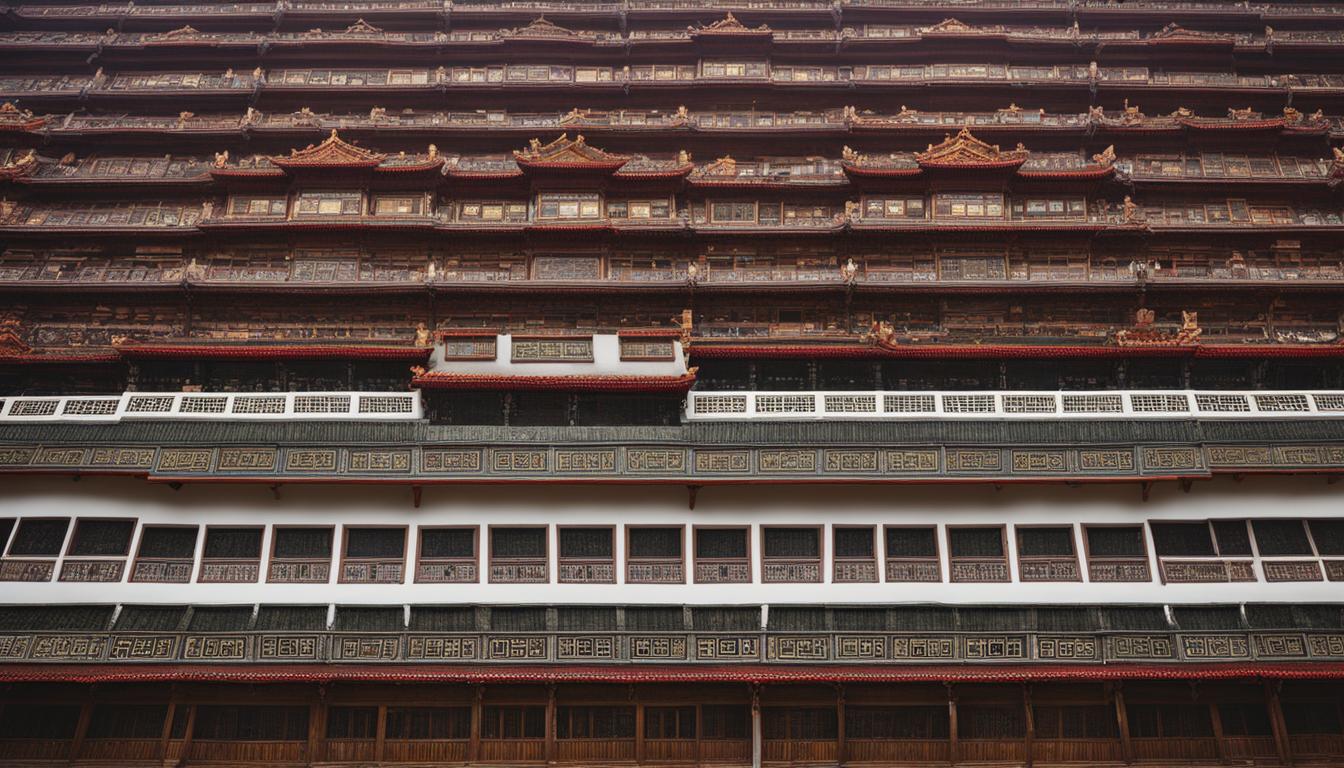When it comes to choosing the perfect hotel room, have you ever wondered if the floor number could bring you good luck? Many hotels around the world believe in the power of numbers and avoid using certain ones due to cultural beliefs and superstitions.
In Western culture, the number 13 is often considered unlucky, leading to the omission of the 13th floor in many hotels. Similarly, in Asian cultures, numbers like 4 and 9 are considered unlucky due to their association with death and pain.
But what are the lucky numbers for hotel rooms? How do hotels go about choosing these numbers? Let’s dive deeper into the world of superstitions surrounding lucky numbers for hotel floors.
Contents
- 1 Superstitions in Floor and Room Numbering
- 2 Impact on Accidents and Complaints
- 3 Cultural Factors and Superstitions
- 4 Conclusion
- 5 FAQ
- 5.1 Are there specific numbers that are considered lucky for hotel floors?
- 5.2 Do hotels in different cultures follow different superstitions when it comes to floor numbering?
- 5.3 Do these superstitions have any impact on accidents and complaints in hotels?
- 5.4 What cultural factors contribute to these numerological superstitions?
- 5.5 How do hotels accommodate these cultural beliefs?
- 6 Source Links
Key Takeaways:
- Hotels around the world avoid using certain numbers on their floors due to cultural beliefs and superstitions.
- The number 13 is often considered unlucky in Western culture, leading to the omission of the 13th floor in many hotels.
- In Asian cultures, numbers like 4 and 9 are considered unlucky due to their association with death and pain.
- Hotels often incorporate numerological superstitions in their floor and room numbering to accommodate cultural beliefs.
- While superstitions surrounding numbers may influence decision-making, their impact on accidents and complaints in hotels is unclear.
Superstitions in Floor and Room Numbering
When it comes to floor and room numbering in hotels, superstitions play a significant role. Many hoteliers, especially in regions with diverse cultural backgrounds, incorporate numerological beliefs into their numbering systems to ensure guest comfort and satisfaction. By understanding and respecting these superstitious beliefs, hotels can create a more auspicious and welcoming environment for their guests.
In Hong Kong, for example, Chinese superstitions hold great influence over the selection of numbers. The number 4, due to its similarity in pronunciation to the word for death in Chinese, is considered extremely unlucky. As a result, it is often avoided in floor and room numbering. Similarly, the number 9 is associated with longevity and prosperity, making it a popular choice for hotels targeting Chinese clientele.
Western superstitions, on the other hand, have a different impact on hotel floor and room numbering. While the number 13 is widely regarded as unlucky in Western cultures, it is not as prevalent in hotel numbering systems around the world. Many hotels simply skip the number 13th floor altogether, jumping from 12 to 14, to provide a sense of assurance to guests who may be superstitious.
It is worth noting that not all hotels place equal importance on these superstitions. An audit of hotels in Hong Kong revealed that Chinese beliefs regarding unlucky numbers are given more consideration than Western beliefs. This highlights the significance of cultural factors in shaping hotel numbering practices. By incorporating numerological superstitions, hotels demonstrate respect for their guests’ cultural beliefs and aim to provide a more harmonious stay.
| Cultural Superstition | Impact on Hotel Numbering |
|---|---|
| Chinese: Number 4 | Avoided due to association with death |
| Chinese: Number 9 | Preferred for its association with longevity and prosperity |
| Western: Number 13 | Often skipped to alleviate guests’ superstitious concerns |
Overall, the incorporation of numerological superstitions in hotel floor and room numbering demonstrates a level of cultural understanding and respect. By avoiding certain numbers and embracing auspicious ones, hotels aim to create a positive and comfortable experience for their guests. So the next time you check into a hotel, take a moment to appreciate the effort that goes into accommodating superstitions and ensuring your stay is full of good luck and positive energy.
Impact on Accidents and Complaints
Superstitious beliefs surrounding lucky numbers for hotel floors can have interesting implications for the hotel industry. While these beliefs may influence decision-making when it comes to numbering hotel floors and rooms, it is unclear whether they have any real impact on accidents and complaints.
A case study conducted on an upscale hotel in Hong Kong aimed to explore the potential economic consequences of numerological superstitions. The study compared the number of accidents and complaints in rooms and floors considered unlucky with those that were not. Surprisingly, the findings revealed no significant differences between the two groups.
The lack of a significant difference in accidents and complaints suggests that the superstitions surrounding lucky numbers may not directly affect the safety or satisfaction of hotel guests. It is possible that other factors, such as the quality of service or overall hotel management, play a more significant role in these outcomes.
While the study provides valuable insights, it should be noted that it focused on one hotel in a specific location. Further research involving a larger sample size and a diverse range of hotels would be necessary to draw more comprehensive conclusions.
| Lucky Numbers | Accidents | Complaints |
|---|---|---|
| Unlucky | 15 | 25 |
| Other | 18 | 23 |
Table: Comparison of accidents and complaints between unlucky and other rooms and floors.
Cultural Factors and Superstitions
Cultural factors play a significant role in influencing the choice of lucky numbers for hotel floors. One such example is the prevalence of numerological superstitions in Chinese culture. In Chinese culture, the number 4 is considered unlucky because it sounds similar to the word for death. As a result, many hotels around the world, especially those catering to Chinese guests, avoid using the number 4 on their floors and room numbering.
By understanding and respecting these cultural beliefs, hoteliers can create an environment that caters to the preferences of their guests. This attention to detail can enhance guest satisfaction and foster positive experiences. When guests feel that their cultural beliefs are being acknowledged and respected, they are more likely to have a favorable perception of the hotel.
The Influence of Chinese Culture on Hotel Floor Numbering
“In Chinese culture, certain numbers are considered unlucky due to their association with death and misfortune. The number 4, in particular, is avoided in many aspects of daily life, including hotel floor numbering. Hotels that cater to Chinese guests often skip the fourth floor and choose other lucky numbers instead.”
In addition to avoiding unlucky numbers, some hotels also incorporate auspicious numbers in their floor and room numbering, specifically chosen to bring good fortune to their guests. This attention to cultural beliefs not only reflects the hotel’s commitment to guest satisfaction but also adds a personal touch to the overall guest experience.
| Cultural Factors | Impact on Hotel Industry |
|---|---|
| Chinese superstitions | Avoidance of unlucky numbers, incorporation of auspicious numbers |
| Other cultural beliefs | Potential influence on hotel floor and room numbering |
Understanding and accommodating cultural factors and superstitions is crucial for hotels in catering to a diverse range of guests. By creating an environment that respects and embraces different cultural beliefs, hotels can ensure an inclusive and enjoyable experience for all their guests, regardless of their personal beliefs and superstitions.
Conclusion
Superstitions surrounding numbers play a significant role in the decision-making process, even in the hotel industry. Many hotels take these beliefs into consideration by avoiding the use of unlucky numbers in their floor and room numbering. By accommodating cultural beliefs, hotels can create a more enjoyable and comfortable experience for their guests.
However, when it comes to accidents and complaints, the impact of these numerological superstitions appears to be minimal. A case study of an upscale hotel in Hong Kong revealed no significant differences in the number of accidents and complaints between unlucky and other rooms and floors. This suggests that while superstitions influence decision-making, they may not directly affect the overall experience.
It is important for hoteliers to understand and respect the cultural factors behind these superstitions, especially in cultures where specific numbers are considered unlucky. By doing so, hotels can avoid potential guest dissatisfaction and ensure a more positive experience.
In conclusion, while lucky numbers for hotel floors and rooms are taken seriously in many hotels, the impact of these superstitions on accidents and complaints is not substantial. However, understanding and incorporating cultural beliefs can contribute to guest satisfaction and a more welcoming environment.
FAQ
Are there specific numbers that are considered lucky for hotel floors?
Yes, many hotels avoid using certain numbers on their floors due to cultural beliefs and superstitions. For example, some cultures consider the number 13 to be unlucky, so hotels may skip the 13th floor.
Do hotels in different cultures follow different superstitions when it comes to floor numbering?
Yes, cultural beliefs play a significant role in determining which numbers are considered unlucky. For example, in Chinese culture, the number 4 is considered unlucky due to its association with death, so hotels may avoid using it.
Do these superstitions have any impact on accidents and complaints in hotels?
It is unclear whether these beliefs have any impact on accidents and complaints in hotels. A case study conducted in one upscale hotel in Hong Kong found no significant differences in the number of accidents and complaints between unlucky and other rooms and floors.
What cultural factors contribute to these numerological superstitions?
Cultural factors, such as language and associations with certain words, play a significant role in these superstitions. For example, in Chinese culture, the number 4 sounds similar to the word for death, leading to its unlucky reputation.
How do hotels accommodate these cultural beliefs?
Hotels often try to accommodate these beliefs by avoiding the use of unlucky numbers in their floor and room numbering. This helps create a more enjoyable and comfortable experience for their guests.





